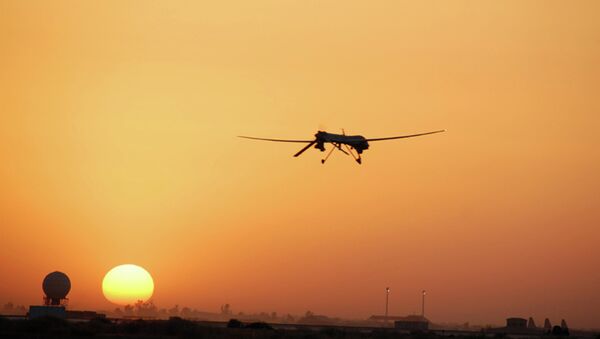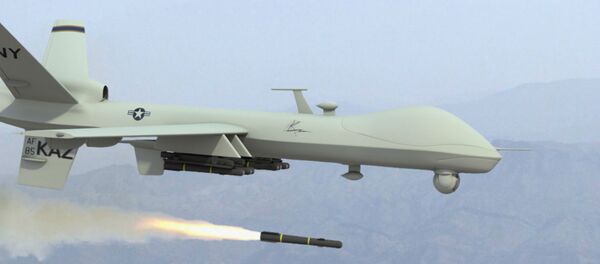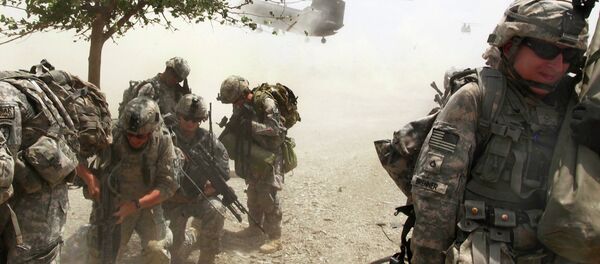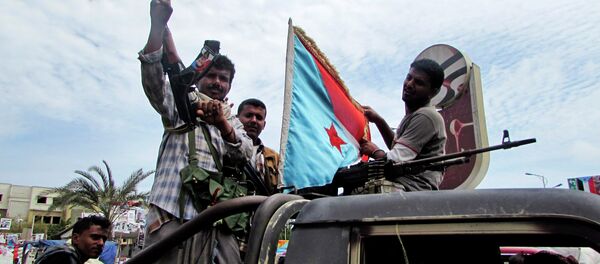"They have a base over there," Abdighani Abdi Jama, state minister for the presidency in the interim regional administration in the Somali city of Kismayo, told Foreign Policy as part of an exclusive report. He pointed toward a large compound near the city’s airport. "They have high tech; they have drones; they have so many things."
Jama’s allegations have been confirmed by others. Regional government officials and forces from the African Union can also testify to the base’s existence. The only organization which seems to be in the dark is the US military, itself.
"While we cannot provide exact details because of operational security issues, we can tell you [US AFRICOM] has sent a limited number of trainers and advisors plus a small military coordination cell to support AMISOM and Somali security forces in international efforts to stabilize Somalia," AFRICOM spokesman Chuck Prichard told Foreign Policy.
"The exact nature of this support, weapons systems or number of personnel involved in these operations cannot be disclosed in order to protect the integrity of these operations and the safety of units in the region."
While the Pentagon may downplaying the extent of its operations outside Kismayo, Jama said the base houses as many as 40 military personnel, and also described a small runway on the grounds of the base, which is used to launch UAVs. These drones conduct "intelligence" and "counterterrorism operations," he said.
Sources also say that US special forces based at Kismayo have participated in ground operations alongside the African Union.
"They come to our forward operating bases and sometimes do joint operations with us," an anonymous source told Foreign Policy. "We often don’t get much notice. They don’t trust us, and we don’t trust them."
This despite Prichard’s statement which insisted military personnel "are not tasked with directly engaging enemy forces."
Sources also name a second Somali site which is being used a secret facility by the US military. Located at Baledogle, north of Mogadishu, that base is also used to conduct drone missions, but is employed in an even shadier practice.
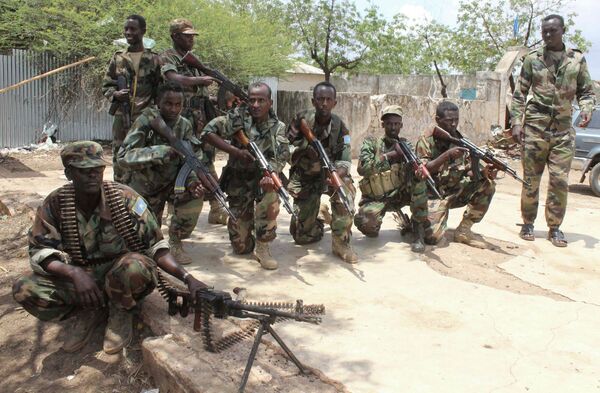
Copying an earlier CIA operation to create an elite Somali commando force, US contractors are currently using Baledogle to train a new squadron known as the Danab, or "Lightning." The project is being overseen by Bancroft Global Development, according to Foreign Policy, but that company has denied any links with the US government.
"We have nothing to do with the Americans," an employee told Foreign Policy. "We’re in charge of training Danab. We have nothing to do with the Americans, and the Americans have nothing to do with us."
That’s because, on paper, Bancroft is responsible for training soldiers with the Somali National Army on behalf of the Ugandan government. Uganda is, in turn, reimbursed by Washington, to avoid a direct paper trail.
"Basically, it’s a way for the [United States] to avoid having to look too hard at what Bancroft or any other contractor is up to," said a UN official stations in Mogadishu. "If everything was kosher, there would be no need to go through such maneuvers."
That could be because Bancroft was previously busted for employing a French army officer who had been convicted for selling his military services in South Africa. That backdoor financing also shields the US from being embroiled in any scandals that might befall the contracting firm, similar to the backlash suffered during the incidents with Blackwater in Iraq.
While the Pentagon has acknowledged maintaining bases in neighboring Djibouti, Kenya, and Ethiopia, but the secretive nature of its Somali bases makes them less accountable, and thereby more prone to abuses.
"Even the glossiest [private security companies] – think Blackwater back in the day – are prone to excesses of force," Bronwyn Bruton, deputy director of the Africa Center at the Atlantic Council, told Foreign Policy. "In the Somali context, those excesses are likely to go unreported, which makes abuse all the more likely."

